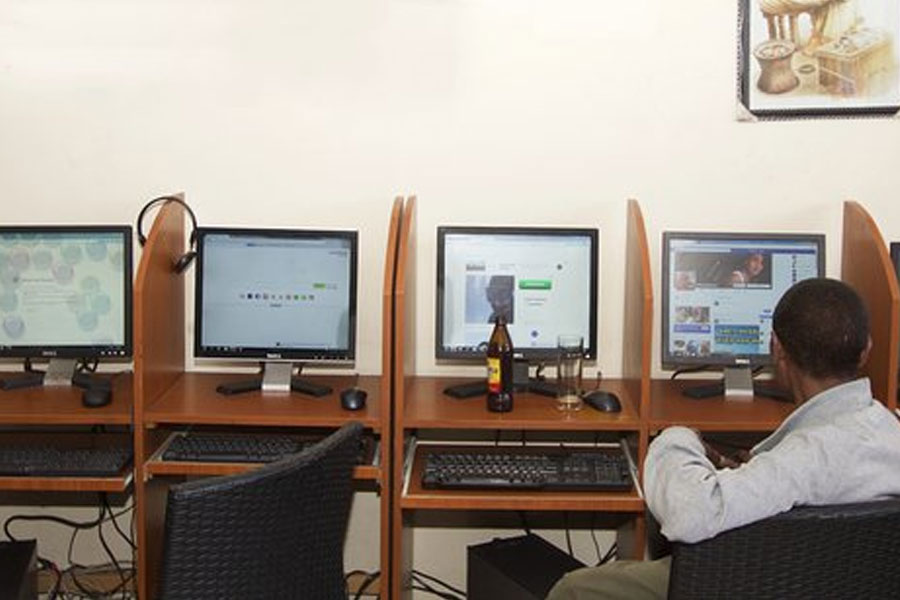
Commentaries | Aug 27,2022
Mar 16 , 2019
By Haben Mehari
The diaspora has gained skills, capital and networks during its stay overseas. It is only fitting that we open the financial sector for them to help us revolutionalise institutions such as investment banks, writes Haben Mehari (haben.mehari@aiesec.net), an entrepreneur and a graduate student at Addis Abeba University.
The current administration has been commendably focused on bringing the diaspora community on board with Ethiopia’s economic development. This ambition was evident with the establishment of the Ethiopian Diaspora Trust Fund, which is targeted to mobilise funds from the global diaspora community for vital projects in Ethiopia.
The engagement with the diaspora community should not only be for mobilisation of funds though. It should go far beyond and reverse the brain drain that has been occurring for decades. The human capital there, with its developed skills, accumulated savings and far-reaching networks, can significantly support the nation if it can be enticed into investment possibilities in Ethiopia.
A new proposal by the National Bank of Ethiopia could be a stepping stone toward that goal. It considers opening up the financial sector to the diaspora community in what is a reverse to policies of the recent past. Planned to be approved after consultation with relevant bodies, it will be a major step forward in modernising the backbone of the economy, the financial sector.
We have Ethiopians that have had extensive experience in this sector, which can be a key asset in the development of the industry, especially where institutions and an enabling regulatory framework are concerned.
One of these institutions that are crucial to the financial industry are investment banks, which can be realised as the sector is liberalised, and strengthened once we get the diaspora community to pitch in.
The primary need for investment banks is their importance for capital markets, especially stock markets. Initial public offerings (IPOs) do not simply happen. There needs to be advisory before and during the issuance, implementation of marketing activities in the form of legal and market analysis and stock price and volume determination. The banks also buy securities of the companies and sell them in the stock exchange, in a process known as underwriting, taking calculated risks for a profit.
But this is only what investment banks are famous for. They perform many more activities and have a significant impact on the country’s economy. They are, in fact, banks, or divisions of banks, that help businesses or governments raise money.
In the primary market, where new securities are issued, investment banks occupy an important role during IPOs by advising, implementing due diligence, pricing stocks and underwriting.
In the secondary market where securities are traded after they have been issued, investment banks act on behalf of their clients, in which securities are traded either in the bank’s own name and on their account - acting as a dealer - or directly traded in the client’s name - acting as a broker. Here, they become “market makers” and bring liquidity to the stock exchange.
In mergers and acquisitions, investment banks conduct client analysis, due diligence, risk analysis, determination of the appropriate offer price, strategically and tactically supporting the negotiation process and developing a financing concept. This will be key to the industry in the coming years as financial liberalisation is realised.
In private equity, investment banks advise of equity investments in established corporations. They further perform financial advisory on project finance, structured finance products, loans provided by two or more banks and in the rating of products and corporations.
A strong financial sector can thus not survive without investment banks. It is crucial that the new bill assesses how the diaspora community can be engaged in the coming financial liberalisation. Their experience and advice would be a key input that would make financial liberalisation a success and the envy of Africa.
A stock exchange, a strong regulatory framework and complementary institutions can help this nation leapfrog. This can be done by not only learning from the strength and weaknesses of these institutions but also engaging with our diaspora community who are working in the top echelons of the profession,
PUBLISHED ON
Mar 16,2019 [ VOL
19 , NO
985]


Commentaries | Aug 27,2022

Delicate Number | Apr 13, 2025

Fortune News | May 09,2020

Commentaries | Jan 03,2021

Radar | Mar 02,2019

Commentaries | Aug 22,2020

Sunday with Eden | Oct 03,2020

Radar | Sep 07,2025

Commentaries | Jun 08,2019

Fortune News | Mar 26,2022

Photo Gallery | 177774 Views | May 06,2019

Photo Gallery | 167987 Views | Apr 26,2019

Photo Gallery | 158687 Views | Oct 06,2021

My Opinion | 137009 Views | Aug 14,2021
Commentaries | Oct 25,2025

Dec 22 , 2024 . By TIZITA SHEWAFERAW
Charged with transforming colossal state-owned enterprises into modern and competitiv...

Aug 18 , 2024 . By AKSAH ITALO
Although predictable Yonas Zerihun's job in the ride-hailing service is not immune to...

Jul 28 , 2024 . By TIZITA SHEWAFERAW
Unhabitual, perhaps too many, Samuel Gebreyohannes, 38, used to occasionally enjoy a couple of beers at breakfast. However, he recently swit...

Jul 13 , 2024 . By AKSAH ITALO
Investors who rely on tractors, trucks, and field vehicles for commuting, transporting commodities, and f...

Oct 25 , 2025
The regulatory machinery is on overdrive. In only two years, no fewer than 35 new pro...

Oct 18 , 2025
The political establishment, notably the ruling party and its top brass, has become p...

Oct 11 , 2025
Ladislas Farago, a roving Associated Press (AP) correspondent, arrived in Ethiopia in...

Oct 4 , 2025
Eyob Tekalegn (PhD) had been in the Governor's chair for only weeks when, on Septembe...

Oct 25 , 2025 . By YITBAREK GETACHEW
Officials of the Addis Abeba's Education Bureau have embarked on an ambitious experim...

Oct 26 , 2025 . By YITBAREK GETACHEW
The federal government is making a landmark shift in its investment incentive regime...

Oct 27 , 2025
The National Bank of Ethiopia (NBE) is preparing to issue a directive that will funda...

Oct 26 , 2025 . By SURAFEL MULUGETA
A community of booksellers shadowing the Ethiopian National Theatre has been jolted b...